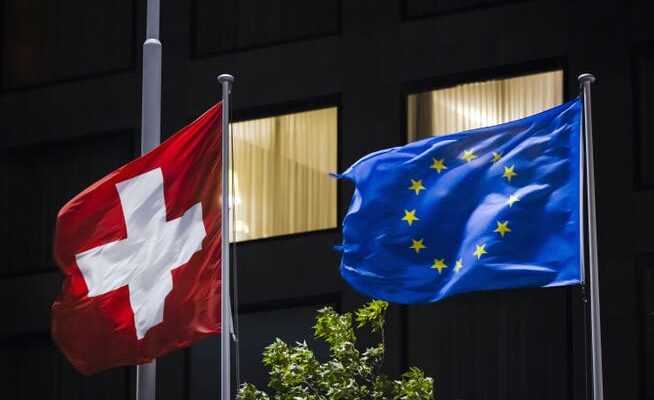The EU wants an institutional solution with Switzerland. Switzerland is struggling with this. But the first parties are slowly becoming friends with concepts such as dynamization and dispute resolution.
The center has set its roadmap for the framework agreement with the EU.
For two years, little was heard from the CVP, which has become centered. She refrained from commenting on pandemic policy, was silent on Europe and instead pushed for the merger with the BDP. But apparently a lot has happened behind the scenes during this time. In any case, the parliamentary group agreed on Saturday after a retreat in Spiez on a pragmatic approach to the Europe dossier and also outlined a viable path.
Dynamic takeover of rights in the interests of Switzerland
Die Mitte sees concrete scope for action in Switzerland’s controversial dynamization of the assumption of rights and dispute resolution. There is definitely potential in the sectoral agreements to negotiate new and pragmatic solutions for further development. The party is therefore calling on the Federal Council to define those areas in which a dynamic adoption of the law and a dispute settlement mechanism are also in Switzerland’s interest.
The party also outlines a solution for dealing with the free movement of people. She believes that a solution could be found in this difficult area if the EU were to grant Switzerland an exemption from the obligation to adopt legislation. In the opinion of the center, the protection of wage levels, social security and the principles of migration policy could be secured, for example, with safeguard clauses.
The party is thus taking up a suggestion made by Central Federal Councilor Viola Amherd. Last year she suggested wringing a kind of protection clause from the EU in the so-called Union Citizens Directive. In the first few years, this would give Switzerland the right to revoke the adoption of the new rules if, for example, certain thresholds were exceeded in social assistance.
In addition, the Mitte politicians stated on Saturday that the protection of wage levels and social security as well as the principles of Swiss migration policy are “non-negotiable”. The Agreement on the Free Movement of Persons must be excluded from both a dynamic legal transfer and a dispute settlement involving the European Court of Justice. Otherwise a solution with the EU would not be able to win a majority.
The party flatly rejected the idea of having Mario Gattiker, the former State Secretary for Migration, clarify where Switzerland could autonomously adapt its law to EU law. “Preliminary obedience on the part of Switzerland with unilateral adjustments without embedding them in a concrete negotiation package” is not in the interests of the center, the party said on Saturday. For an agreement, the EU is expected to provide binding services in return, for example in the area of research or the recognition of equivalences.
The red lines are gone
The timetable that the Mitte parliamentary group has now agreed on is partly reminiscent of a proposal that former State Secretary Michael Ambühl presented last year. The current professor for negotiation and his colleague Daniela Scherer take the position that an institutional agreement is even desirable from the Swiss point of view “if the cushioning measures necessary due to the dynamic adoption of the law are perceived by domestic politics as sufficient”: They specifically propose that Switzerland basically accepts the EU’s request for dynamic legal adoption in market access agreements, but enforces exceptions for politically sensitive areas such as wage protection or the Union Citizens’ Directives. Die Mitte was not the only one to be won over by this approach. The FDP is also currently considering the Ambühl-Scherer model.
The impressive thing about this path, which is now being taken from the middle, is that it formally does not require red lines. Although Switzerland essentially adopts the demands of the EU, it relies on exceptions, so-called opt-outs, in sensitive areas such as wage protection or the Union Citizens Directive.
In the meantime, the center has apparently realized that the Federal Council was right when it ended negotiations with the EU. The party announced on Saturday that he had created clarity for both sides. However, the party now expects Foreign Minister Cassis to quickly present his colleagues in the Federal Council with an assessment of the situation. Any further delay in this dossier would be harmful.
Green Word Clouds
While Die Mitte was able to agree on a concrete Europe paper in Spiez on Saturday, the Greens are apparently still in the evaluation phase. At their delegates’ meeting on Saturday, they passed a European policy resolution calling on the Federal Council to “finally return to the negotiating table”. But the paper does not say much more than the slogan “Get out of the dead end”.
The resolution does not contain any concrete suggestions as to what an institutional solution capable of gaining a majority might look like. Instead, the party assures that it is working with Operation Libero to develop a European initiative. Two and a half months after the referendum was launched, the Greens and their friends still have no idea what exactly they should be asking for.
